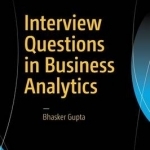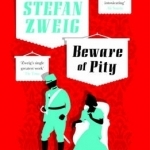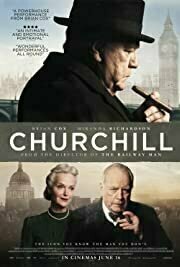
My Little Town: Toddler's Seek & Find
Education and Entertainment
App
++ The only interactive activity book with over 80 animations ++ wonderkind wishes to thank for...

FlyMaps | 3D Maps + Wikipedia
Navigation and Travel
App
FlyMaps uses 3D maps to visit cities around the world. Including more than 200 cities and places....
Bob Mann (459 KP) rated The Courier (2020) in Movies
Aug 16, 2021
Positives:
- Benedict Cumberbatch is outstandingly good in this. He could have been born to play the slightly bemused English gentlemen of the time. All golf, tweed suits and gentlemen's clubs. No spoilers, but there is a physical transformation as well that's impressive to observe. The film would have been decidedly so-so I think without that core central performance.
- The film is based on a true story. As someone who was born in 1961, it's a good reminder to count our blessings that you, me and everyone else are still around to live our lives at all. The world was on the brink of a precipice and learning the story of Wynne's part in this was insightful history.
- There's a nice catchy Russian-themed score by Abel Korzeniowski.
Negatives:
- I'm a big fan of Jessie Buckley. Really, I am. And to be fair to her, her performance is really good. I particularly liked a scene where she dismissed on the doorstep a local busybody. But I just didn't see her as Wynne's pearl-neckless-wearing wife in this part. Perhaps the problem is that although there's a 13 year age gap between the leads, I always imagine Buckley as being much younger that her 31 years. For whatever reason, the casting didn't work for me.
Summary Thoughts on "The Courier": As a true-life spy story, the movie is interesting and Cumberbatch's performance is brilliant. But I can't say that I was 100% grabbed by it. While having a few moments of high drama and tension - particularly one on a plane - I never felt that to be maintained for enough of the movie. Director Dominic Cooke has a limited filmography (with the Saoirse Ronan movie "On Chesil Beach" being his only other feature) and writer Tom O'Connor is the guy behind the more flippant "Hitman's Bodyguard" films. Perhaps a more experienced writer/director team would have elevated this to a higher level.
So it's eminently watchable but not memorable. Just a marginal hit in my book.
(For the full graphical review, please check out onemannsmovies on the web, Facebook and Tiktok. Thanks.)
Bob Mann (459 KP) rated Churchill (2017) in Movies
Sep 29, 2021
I’m not a historian but am married to one, so know the importance of “sources” in the pursuit of “truth”: one man’s terrorist is after all another man’s freedom fighter from a different perspective. Some sources on the internet (here for example) certainly suggest the The British (led by Churchill as Prime Minister) might have sensibly promoted the acceleration of the Italian campaign to reach Berlin rather than the far riskier Channel crossing.
This film however paints Churchill as a man demonised by his decision to send young men to their deaths in the fateful Gallipoli beach landings of World War One, with this – rather than a sensible strategic one – being the primary reason for opposing the Normandy landings. To further paint him as a bumbling old fool that is “worked around” by his peers strikes you as borderline libellous.
So the film’s script, by novice Alex von Tunzelmann, immediately set the wrong tone with me, and the undeniably strong performances of Brian Cox (“The Bourne Identity”) as Churchill and the wonderful Miranda Richardson (“Harry Potter” and the soon to be released “Stronger”) as Clemmie can’t fill the gap.
Besides anything else, diretor Jonathan Teplitzky (“The Railway Man”) delivers a piece so dull and lifeless, and with so much brooding, that its not remotely enjoyable. You think the introduction of a bullied secretary – Ms Garrett (Ella Purnell) – with a strong personal connection to ‘Overlord’ will add dramatic colour? But this angle too seems to go nowhere in particular.
There are many tales of the Normandy landings that are fascinating, over and above the dramatic sweep of “The Longest Day” (which is surely well overdue for a remake?) and Spielberg’s fictionalisation of the Niland brothers in “Saving Private Ryan”. How about the 2 out of 29 American amphibious tanks that reached Omaha beach after ignoring British advice to not launch so far from shore in rough seas?
So, as a film, it might be “worthy”. But I didn’t remotely believe the depiction of Churchill and it astonished me that such a rivetingly exciting period of British history could deliver a film that bored me. So, sorry, can’t recommend this one. Perhaps Joe Wright will have a better go with Gary Oldman as Churchill in “Darkest Hour”…
ClareR (6067 KP) rated The German House in Books
Dec 30, 2019
I really enjoyed this novel. It was hard-going at times, and it did read like a translated novel. It did however, catch the spirit of the time. Eva’s longing to break out of the societal restrictions of the time (for example when she refers to how much she likes a new Beatles song that Jürgen can’t understand, he doesn’t like pop music) and Jürgen’s wish that she stops work as soon as she gets engaged (as a modern woman, I was positively fuming at this point!!).
I was fascinated by the trip the Court makes to Auschwitz - somewhere I’ve never been, and after a trip to Oranienburg (a camp for political prisoners outside Berlin), I feel that I would struggle to go. This was one of the most emotional parts of the book.
The side story involving Eva’s older sister is also fascinating, and I feel portrays the effect of seeing so much violence and hatred as a young child (no spoilers here!).
All in all, after I got used to the writing style, I really enjoyed this. It was an interesting insight into the post-war years, and West Germany’s reaction to the damage and destruction that the Nazis had caused during the Holocaust.
This is well worth a read.
Many thanks to NetGalley and the publisher for my copy of this book to read and honestly review.

Manufacturing Performance Management Using SAP OEE: Implementing and Configuring Overall Equipment Effectiveness: 2016
Dipankar Saha, Mahalakshmi Syamsunder and Sumanta Chakraborty
Book
Learn how to configure, implement, enhance, and customize SAP OEE to address manufacturing...

International Finance and Open-Economy Macroeconomics: 2016
Giancarlo Gandolfo and Daniela Federici
Book
This rigorous textbook tames technicalities and makes even the most complex models accessible to...

Interview Questions in Business Analytics: How to Ace Interviews and Get the Job You Want: 2016
Book
Discover relevant questions-and detailed answers-to help you prepare for job interviews and break...
The Advanced Game Developer's Toolkit: Create Amazing Web-Based Games with JavaScript and HTML5: 2017
Book
After you've mastered the basics, these are the most important skills and techniques you need to...

Beware of Pity
Anthea Bell, Stefan Zweig and David Pearson
Book
Stefan's Zweig's Beware of Pity is an almost unbearably tense and powerful tale of unrequited love...



